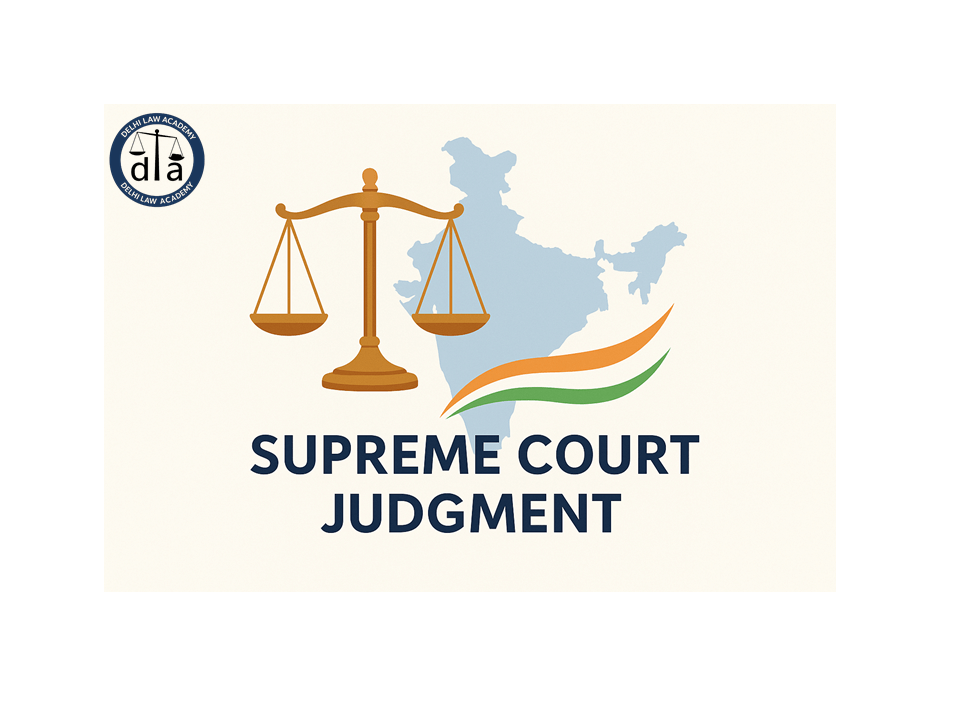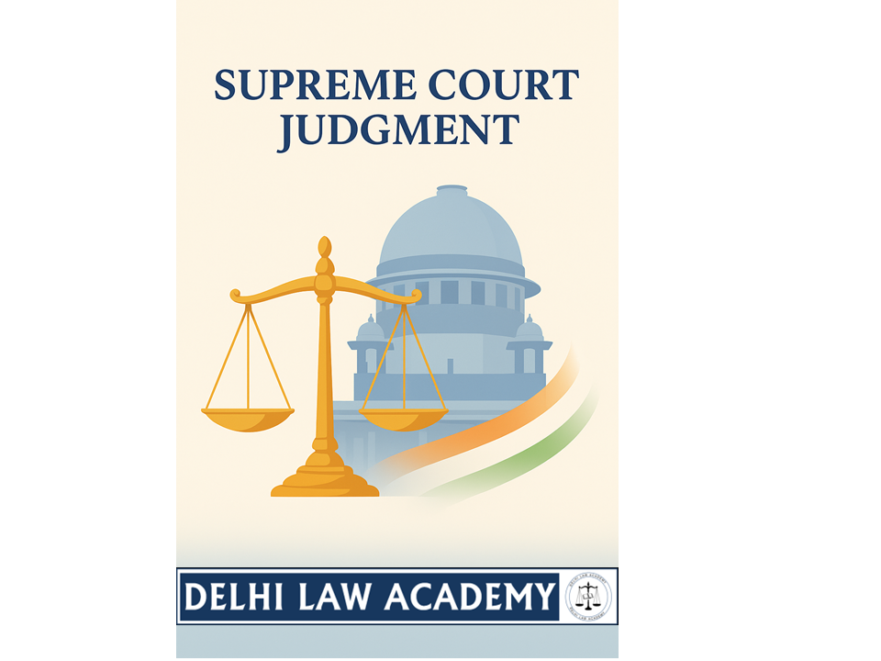
📚 Poona Ram v. Moti Ram – Key Judgment Summary
❓ Questions Addressed
- 1️⃣ What is a possessory title?
- 2️⃣ When can a suit for possession of immovable property based on previous possession (and not on title) be filed?
- 3️⃣ What is ‘settled possession’ or effective possession of a person without title which entitles him to protect his possession as if he were a true owner?
- 4️⃣ Can a person in peaceful and settled possession be dispossessed by the rightful owner by force?
✅ Answers to all these questions can be found in the landmark Supreme Court judgment in Poona Ram v. Moti Ram delivered on January 29, 2019.
📄 This judgment has been summarized in 5 pages by Delhi Law Academy, Jaipur, retaining the exact language of the Court, for students preparing for RJS, DJS, PCS(J) and other Judicial Service exams.
📌 Case Overview
Poona Ram v. Moti Ram – Supreme Court of India, January 29, 2019
The High Court of Rajasthan at Jodhpur had passed a judgment on 28.08.2006, which was challenged in this appeal by the unsuccessful defendants.
1️⃣ Brief Facts
A suit was filed by Respondent No. 1 (Moti Ram) for declaration of title and possession. The plaintiff had no title documents but claimed possessory title based on long prior possession. He alleged wrongful dispossession by defendants on 30.04.1972, within 12 years of filing the suit.
The Trial Court decreed the suit, but the First Appellate Court reversed it, dismissing the suit since the defendants proved their title and possession.
2️⃣ Legal Questions
- Did the plaintiff have a better title over the suit property?
- Was the plaintiff in settled possession of the property, requiring legal dispossession?
3️⃣ Key Observations by the Court
📌 Section 64 of the Limitation Act, 1963 allows a suit for possession based on prior possession within 12 years of dispossession, known as a possessory title, distinct from proprietary title.
📌 Settled or effective possession of a person without title entitles him to protect his possession as if he were the true owner.
4️⃣ Jurisprudential Principles
Salmond on Jurisprudence explains:
“Possession is a good title of right against anyone who cannot show a better. A wrongful possessor has rights of an owner against all except earlier possessors and the true owner. Legal remedies protecting possession are called possessory, while those protecting ownership are proprietary.”
In Nair Service Society Ltd. v. K.C. Alexander (AIR 1968 SC 1165), the Court ruled that when neither party has title, possession alone decides. A person exercising peaceful ownership rights has a good title against everyone except the rightful owner.
5️⃣ Settled Possession Explained
- Possession must be effective, undisturbed, and known to the owner.
- Casual, stray, or intermittent acts do not amount to settled possession.
- A rightful owner cannot evict someone in settled possession without legal recourse.
- Possession includes animus possidendi (intention to possess).
6️⃣ Court’s Conclusion
The plaintiff (Moti Ram) could not prove settled possession or possessory title based on minor evidence like a motor vehicle body on the property.
⚖️ The appeal was allowed in favor of the defendants, as the plaintiff failed to demonstrate possessory title or long-term settled possession.
📘 Key Takeaways for Students
- Possessory title protects possession, not ownership.
- Settled possession requires long-term, acquiesced possession.
- A trespasser cannot claim rights unless possession has matured into settled possession.
- Reasonable force may be used to protect possession from casual trespass, but the law must intervene against settled possession violations.
✨ This case is crucial for RJS, DJS, PCS(J), and other Judicial Service exams students as it clearly explains the difference between possession and ownership in Indian law.
📘 Free Study Material for RJS Aspirants!
Want a head start in your RJS Coaching in Jaipur preparation?
Download our FREE study material prepared by Delhi Law Academy’s expert faculty.
❓ Frequently Asked Questions
Possessory title is the right to protect one’s possession of property even without formal ownership documents. It allows a person in settled possession to defend their possession as if they were the true owner.
A suit for possession based on prior possession (not title) can be filed under Section 64 of the Limitation Act, 1963, if filed within 12 years from the date of wrongful dispossession.
Settled possession means continuous, undisturbed, and effective possession of a property, known to the owner. It allows the possessor to defend against trespassers and even rightful owners using legal protection.
No. A person in peaceful and settled possession cannot be forcibly dispossessed. The rightful owner must seek legal remedies to recover possession.
Possessory suits protect possession (even without ownership), while proprietary suits protect ownership rights. Possession is recognized legally against all except earlier possessors and true owners.
If neither party has legal title, possession alone decides rights. Courts consider peaceful, continuous, and settled possession as evidence of possessory title, as seen in Poona Ram v. Moti Ram.
Contact us
📍 Delhi Law Academy – Jaipur Branch
6C, Tower 2, Coaching Hub, Pratap Nagar, Jaipur – 302033
📞 Phone:
+91 9911916552
+91 8447285606
✉️ Email:
contactus@delhilawacademy.com

